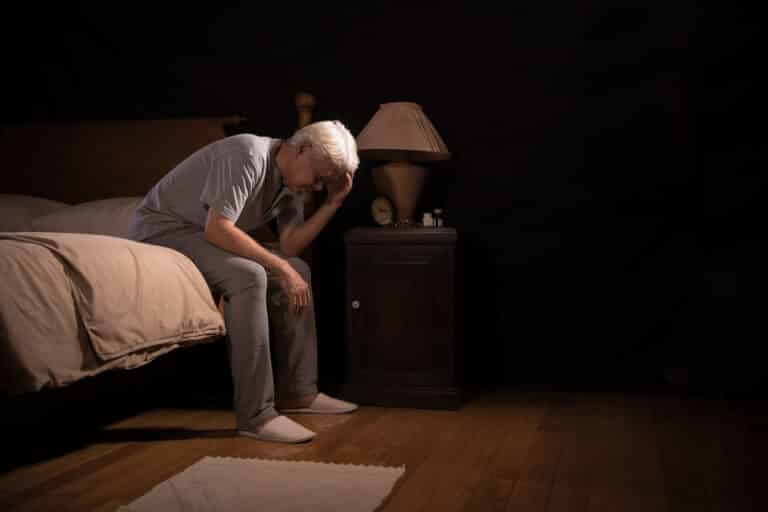Loneliness among older adults has reached epidemic proportions, with recent studies showing that over one-third of seniors report feeling isolated. What many don’t realize is that loneliness isn’t just an emotional burden—it creates profound physical changes in the body that can be as damaging as smoking 15 cigarettes a day.
The good news is that seniors with a strong support system, including home care services, can combat the physical effects of loneliness and improve their overall health and well-being.
The Physical Toll of Isolation
When seniors experience chronic loneliness, their bodies respond as if under constant threat. The stress hormone cortisol floods their system, triggering a cascade of harmful effects. Blood pressure rises, increasing the risk of heart disease and stroke. The immune system weakens, making older adults more susceptible to infections and slower to heal from injuries or illnesses.
Sleep patterns often deteriorate, creating a cycle where poor rest worsens feelings of isolation and depression. Lonely seniors also face a 50% increased risk of developing dementia, as social interaction plays a crucial role in maintaining cognitive function. Not only that, but the inflammation caused by chronic loneliness accelerates aging at the cellular level, quite literally shortening lifespan.
Perhaps most concerning is how loneliness affects daily self-care. Isolated seniors may lose motivation to exercise, eat nutritious meals, or take medications properly. Without social accountability from family, friends, community, and home care providers, these essential health behaviors often decline, compounding the physical risks.
Breaking the Cycle: Practical Solutions
Addressing senior loneliness requires a multi-faceted approach, including home care, that recognizes both the emotional and physical components of this crisis.
- Technology offers promising solutions—video calls with family, online communities centered around shared interests, and apps designed to connect neighbors can bridge geographical gaps.
- Additionally, many seniors find renewed purpose through virtual volunteering opportunities or online tutoring programs.
- Community-based interventions are also a powerful ally. Senior centers offering everything from book clubs to gardening groups provide regular social interaction and structured activities.
- Intergenerational programs that pair older adults with younger volunteers create meaningful relationships while combating ageism.
- Pet therapy and companion animal programs offer unconditional companionship that can significantly reduce feelings of isolation.
The Role of Home Care and Family
Home care services play a crucial role in identifying and addressing loneliness. Regular screening for social isolation should become as routine as checking blood pressure. Additionally, caregivers provide the encouragement that many seniors need to break free of the cycle they’re in and get involved once again. Of course, it also helps that home care providers offer transportation and are able to be with seniors as they step outside of their comfort zone.
Family members and friends can also make an impact through consistent, meaningful contact. Rather than brief check-in calls, longer conversations about shared memories, current events, or future plans help seniors feel valued and heard. Additionally, including older adults in family decisions and seeking their advice reinforces their continued importance.
Combating senior loneliness requires recognizing it as the serious health issue it truly is. Communities, families, home care, and healthcare systems must work together to create supportive networks that prioritize social connection alongside physical health.
Investing in addressing loneliness today will lead to healthier, happier seniors and lower healthcare costs tomorrow, making it a priority for all.
If you or an aging loved one is considering hiring Home Care in Santa Clara, CA, contact the friendly staff at Home Care Professionals today.
Call (866)-940-4855
Sources:
- https://pmc.ncbi.nlm.nih.gov/articles/PMC7223173/#:~:text=The%20long%2Dterm%20(greater%20than,%2C%20in%20particular%20(6).
- https://www.pbs.org/newshour/health/how-the-loneliness-of-social-isolation-can-affect-older-adults-brains#:~:text=It%20is%20thought%20that%20loneliness%20may%20contribute,developing%20dementia%20by%20as%20much%20as%2020%.
- https://www.news-medical.net/news/20241209/Study-One-third-of-older-Americans-still-struggle-with-loneliness.aspx#:~:text=The%20poll%20is%20supported%20by,health%20especially%20as%20we%20age.%22&text=Malani%20serves%20as%20senior%20advisor,directed%20from%202017%20to%202022.
- https://www.psu.edu/news/health-and-human-development/story/short-term-loneliness-associated-physical-health-problems
- Helping Seniors Manage the Physical Effects of Loneliness - May 29, 2025
- The Importance of Eating Well for Alzheimer’s Patients - May 19, 2025
- Why Dry Feet Are Dangerous in the Elderly - May 14, 2025




